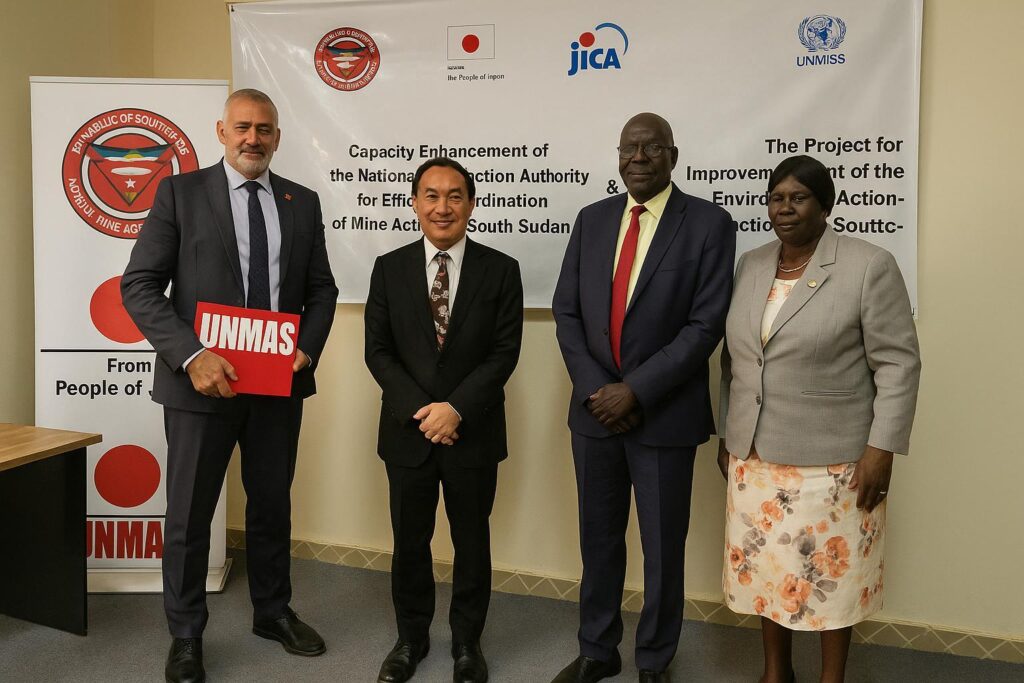Record Japanese Support for Demining in South Sudan
Japan has injected more than 16 million US dollars into South Sudan’s mine action portfolio since 2011, a gesture its embassy says embodies Tokyo’s human-security doctrine. Diplomats hail the partnership as a pragmatic route toward safer communities and accelerated post-conflict recovery.
Clearing the Path for Agriculture and Transport
Funds channelled through the United Nations Mine Action Service strengthen national capacity to clear explosive remnants, opening farmland, roads and building plots. Officials note that each newly released hectare quickly translates into harvests, transport links and construction sites that support local livelihoods.
New 18-Month Project Targets Safer Working Conditions
An 18-month initiative, valued at 335 million yen, aims to modernise the working environment for clearance teams. Equipment upgrades, improved coordination systems and specialised training are expected to shave days off deployment schedules and reduce occupational risks, according to project documents.
Mixed-Gender Teams Lead National Ownership
$300,000 in supplementary support since March enables UNMAS to field mixed-gender national teams and deepen the National Mine Action Authority’s technical bench. “Diverse teams mirror our society and strengthen public trust,” explains NMAA Director Tito Bandas during a telephone interview.
Measured Progress and Remaining Challenges
To date, more than 1.2 million explosive items have been destroyed, 1,300 square kilometres released and 4,000 kilometres of roads cleared. Yet 22 square kilometres remain contaminated, hindering aid deliveries and farmland access; children account for roughly eighty percent of recent casualties, UNMAS data show.
South Sudan’s 2026 Ambition Faces Funding Gap
Juba targets 2026 for an anti-personnel landmine-free declaration, but global financing is tightening. Japanese diplomats urge partners to “stay the course” so that progress earned through a decade of painstaking work is not stalled by late-stage budget shortfalls.


